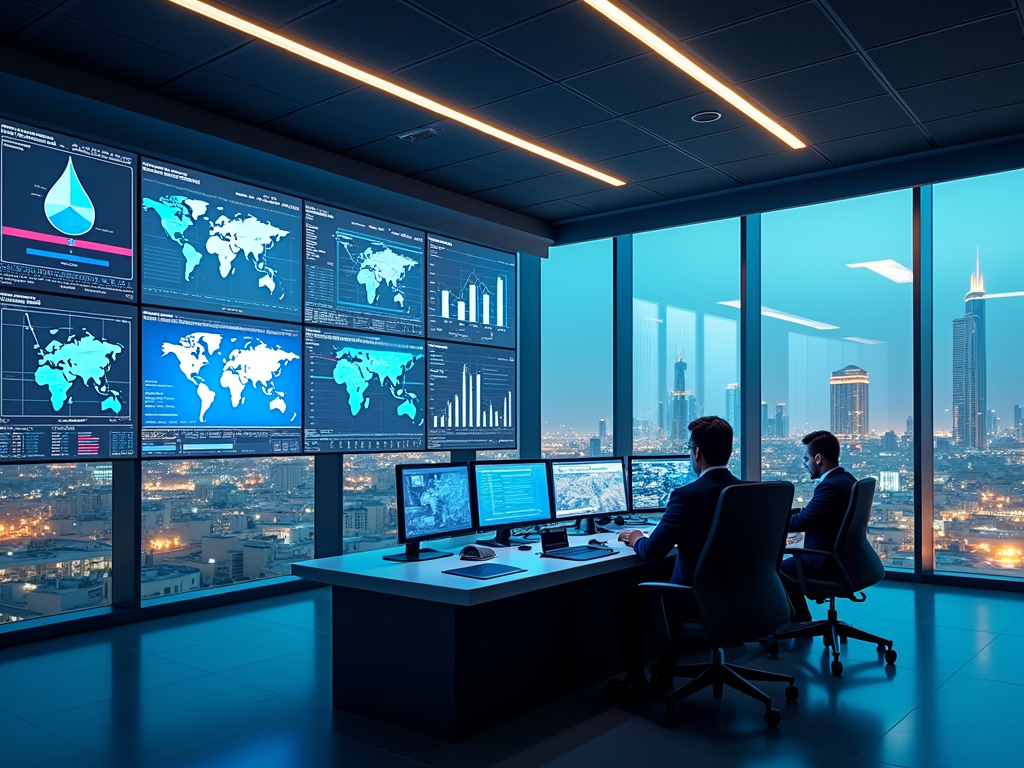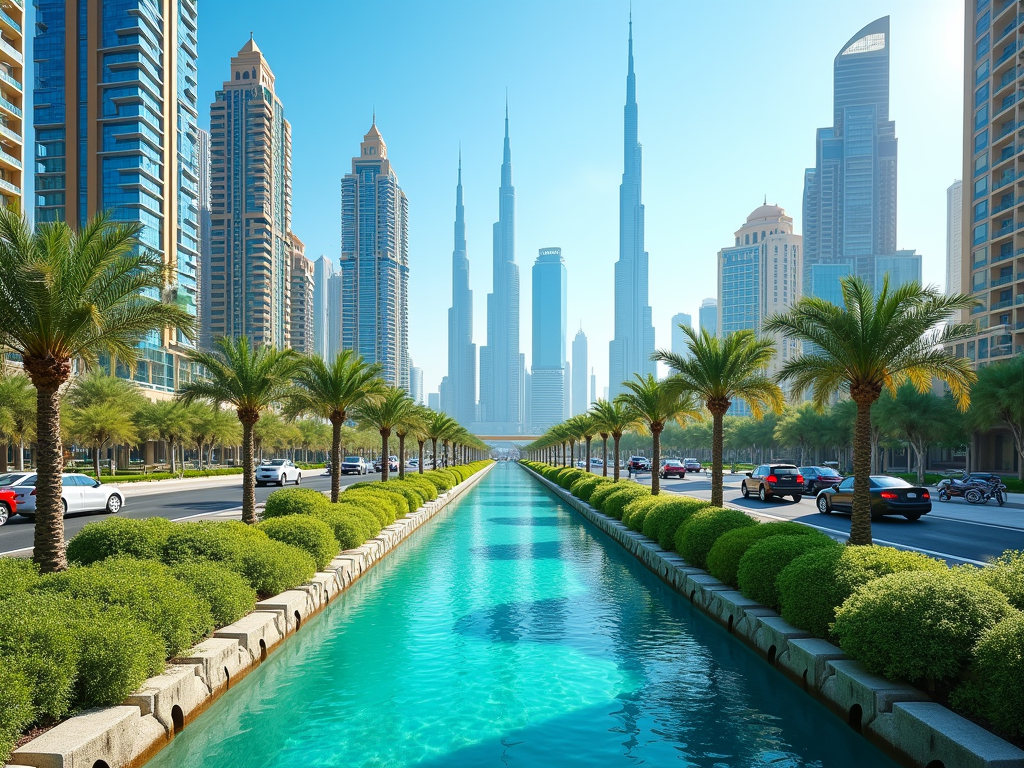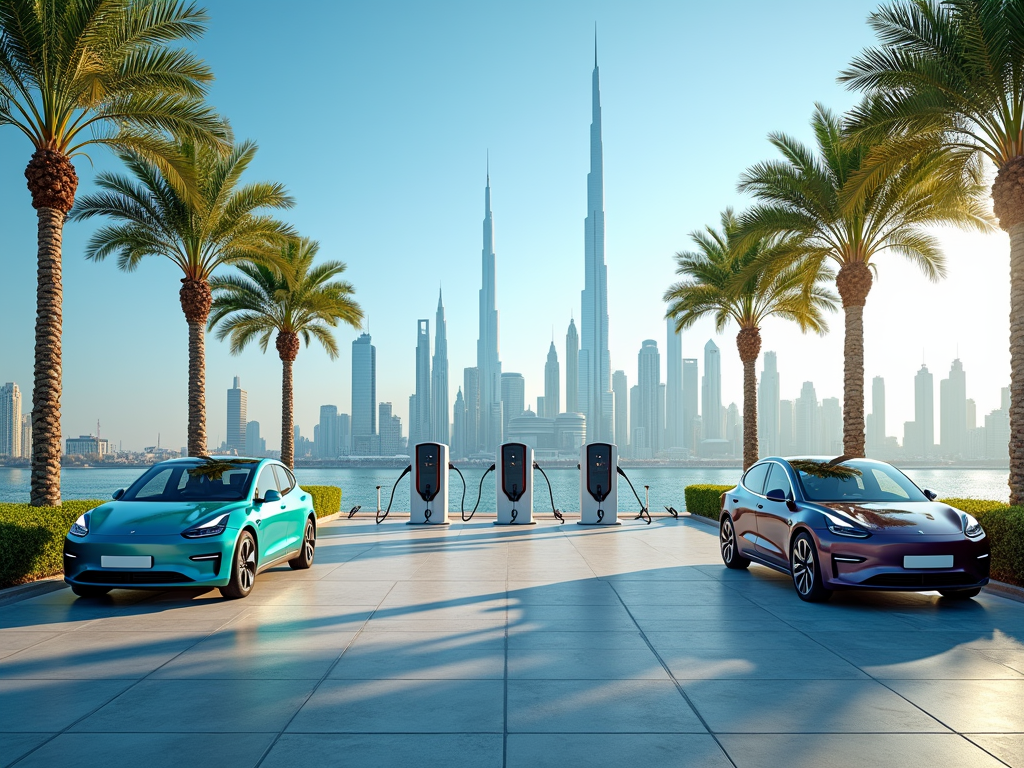Dubai’s initiative for smart water management plays a pivotal role in its urban development strategy. By leveraging technology and innovative practices, the city aims to optimize water resources, cater to a growing population, and ensure sustainability in its infrastructures. This article delves into the essential components of Dubai’s smart water management, how it integrates with urban development, its environmental implications, and future prospects.
Understanding Smart Water Management

Smart water management refers to the use of advanced technologies and data-driven processes to enhance water supply efficiency and quality. In Dubai, several key components characterize its approach:
- IoT Sensors: Embedded in the city’s water distribution systems, these sensors provide real-time data on water quality, flow rates, and leakage detection.
- Data Analytics: Advanced analytics is used to interpret the data collected from sensors, allowing for informed decisions regarding water distribution and management.
- Water Recycling Facilities: Dedicated facilities treat wastewater for reuse in irrigation and industrial processes, promoting sustainable water use.
- Public Awareness Programs: Initiatives aimed at educating residents about water conservation practices ensure community involvement.
- Digital Infrastructure: Mobile applications and platforms enable consumers to monitor their water usage and receive alerts regarding any anomalies.
Integration with Urban Development

As Dubai continues to urbanize, the integration of smart water management into its development plans is essential. The city’s rapid growth and increasing population put immense pressure on its water resources. Here are some key ways smart water management supports urban development:
- Efficient Resource Allocation: Smart systems enable effective monitoring of water demand and supply, ensuring resources are allocated strategically.
- Infrastructure Resilience: Advanced detection of leaks and system failures contributes to enhanced infrastructure resilience, minimizing disruptions.
- Environmental Sustainability: Recycled water systems reduce the burden on freshwater resources, aligning with global sustainability goals.
- Cost Reduction: Efficiency and reduced wastage lead to significant cost savings in urban water management.
- Enhanced Livability: A reliable and safe water supply directly contributes to the quality of life and attractiveness for residents and businesses.
Environmental Impact of Smart Water Management
The environmental implications of smart water management in Dubai are profound. The initiatives not only facilitate responsible water use but also play a crucial role in reducing the city’s ecological footprint. Let’s explore some benefits:
- Water Conservation: By optimizing water usage, these systems contribute significantly to conservation efforts and reduce wastage.
- Biodiversity Support: Recycled water can be utilized to maintain green spaces and support local biodiversity in urban settings.
- Reduction in Pollution: Effective wastewater treatment processes help reduce pollutants discharged into natural water bodies.
- Climate Change Resilience: Efficient water management systems mitigate the impacts of climate change by promoting sustainable practices.
- Community Engagement: As residents become more aware of water issues, community-driven environmental initiatives increase.
Future Prospects for Water Management in Dubai
The future of smart water management in Dubai looks promising as technological advancements continue. With ongoing investments in digital infrastructure and a commitment to sustainability, Dubai is set to lead by example in urban water management. The following trends are anticipated:
- AI and Machine Learning: The integration of AI will help in predictive analytics for better resource management.
- Smart Grid Technologies: Enhanced communication between water supply sources and consumers will improve efficiency.
- Expansion of Reuse Systems: More projects focusing on water recycling and treatment will emerge, following successful models.
- International Collaboration: Dubai may partner with global entities to share insights and technologies for smarter water solutions.
- Increased Public Involvement: Community initiatives will likely expand, encouraging more resident participation in water conservation efforts.
Conclusion
Dubai’s approach to smart water management stands as a testament to its commitment towards sustainable urban development. By embracing technology and innovative practices, the city not only safeguards its water resources but also enhances the quality of urban life. The integration of smart systems is pivotal in addressing the challenges posed by rapid growth and environmental change, thereby fostering a resilient and sustainable metropolis for future generations.
Frequently Asked Questions
1. What is smart water management?
Smart water management utilizes advanced technologies such as IoT, data analytics, and recycling systems to optimize the efficiency and sustainability of water use.
2. How does smart water management benefit urban development in Dubai?
It promotes efficient resource allocation, enhances infrastructure resilience, contributes to environmental sustainability, reduces costs, and improves overall livability.
3. What technologies are involved in Dubai’s smart water management?
Key technologies include IoT sensors for real-time monitoring, data analytics for decision-making, and digital platforms for consumer engagement.
4. How does water recycling play a role in sustainability?
Water recycling processes allow treated wastewater to be reused for irrigation and industrial purposes, significantly conserving freshwater resources and reducing pollution.
5. What are the future trends for water management in Dubai?
Future trends include the integration of AI, the expansion of reuse systems, enhanced public involvement, and international collaborations for sharing best practices.


